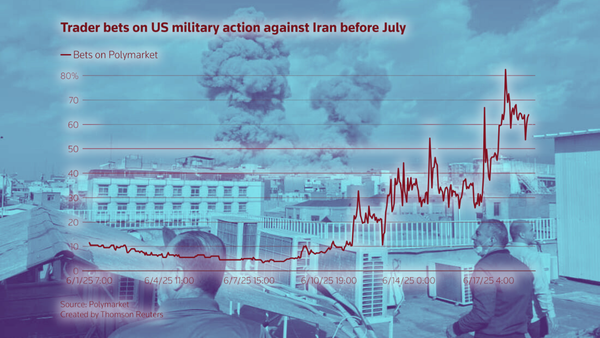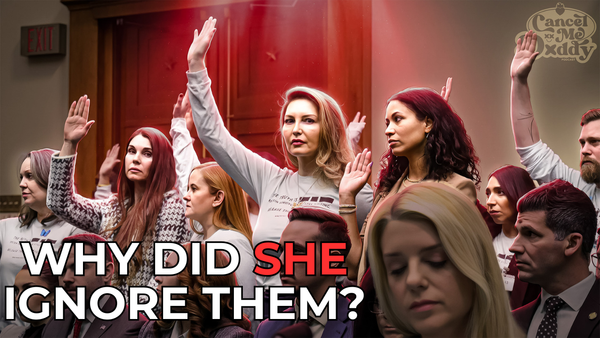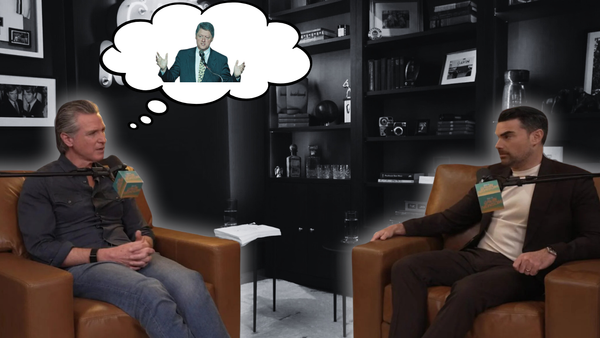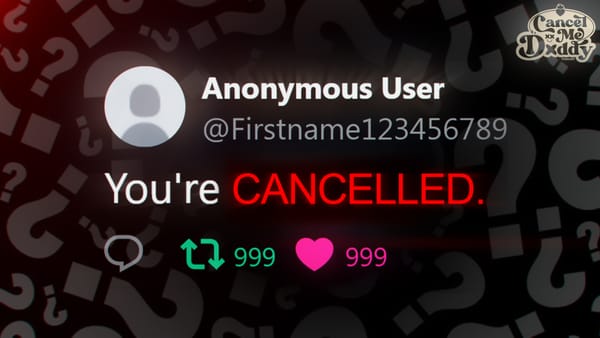Black Trans Folks Have Been Here Before
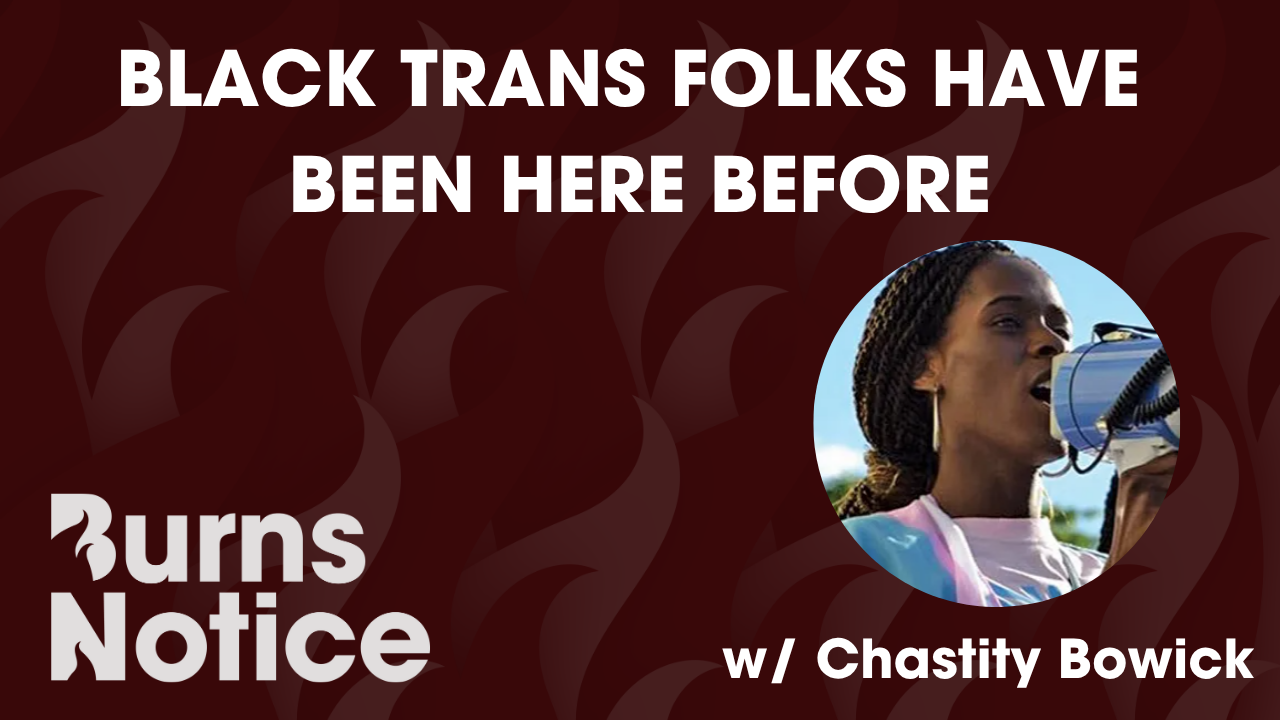
A timely interview with Chastity Bowick, the new Executive Director of the Marsha P. Johnson Institute. This interview has been edited for clarity and may differ slightly from the audio version.
I've been asked a lot by my friends lately what I think of the state of trans rights in the US, and I always say that things are certainly very bad. The government has never before taken such a widespread effort to oppress trans people throughout the country.
Just yesterday, the Supreme Court heard a phony case attempting to toss out state conversion therapy bans throughout the country, and it looks likely they'll invent whatever legal reasoning they need to get the anti-LGBTQ position the court wanted from the outset.
The president is running around declaring that Democrats want "transgender for everybody," which is a phrase that makes no sense and yet he's never challenged on it.
But as I sit back thinking about the state of trans rights in this country, I can't help but think about the fact that what white trans people are newly experiencing in the last few years has always been the experience of Black trans folks in this country. To me, the key to our survival going forward will need to be learned from the Black trans people who have been here their whole lives, and then we will need to have solidarity with each other to get out of this whole mess.
None of us are free until all of us are free, and I've invited activist and businesswoman Chastity Bowick, who was recently named the new executive director of the Marsha P. Johnson Institute. I hope you all enjoy the interview!
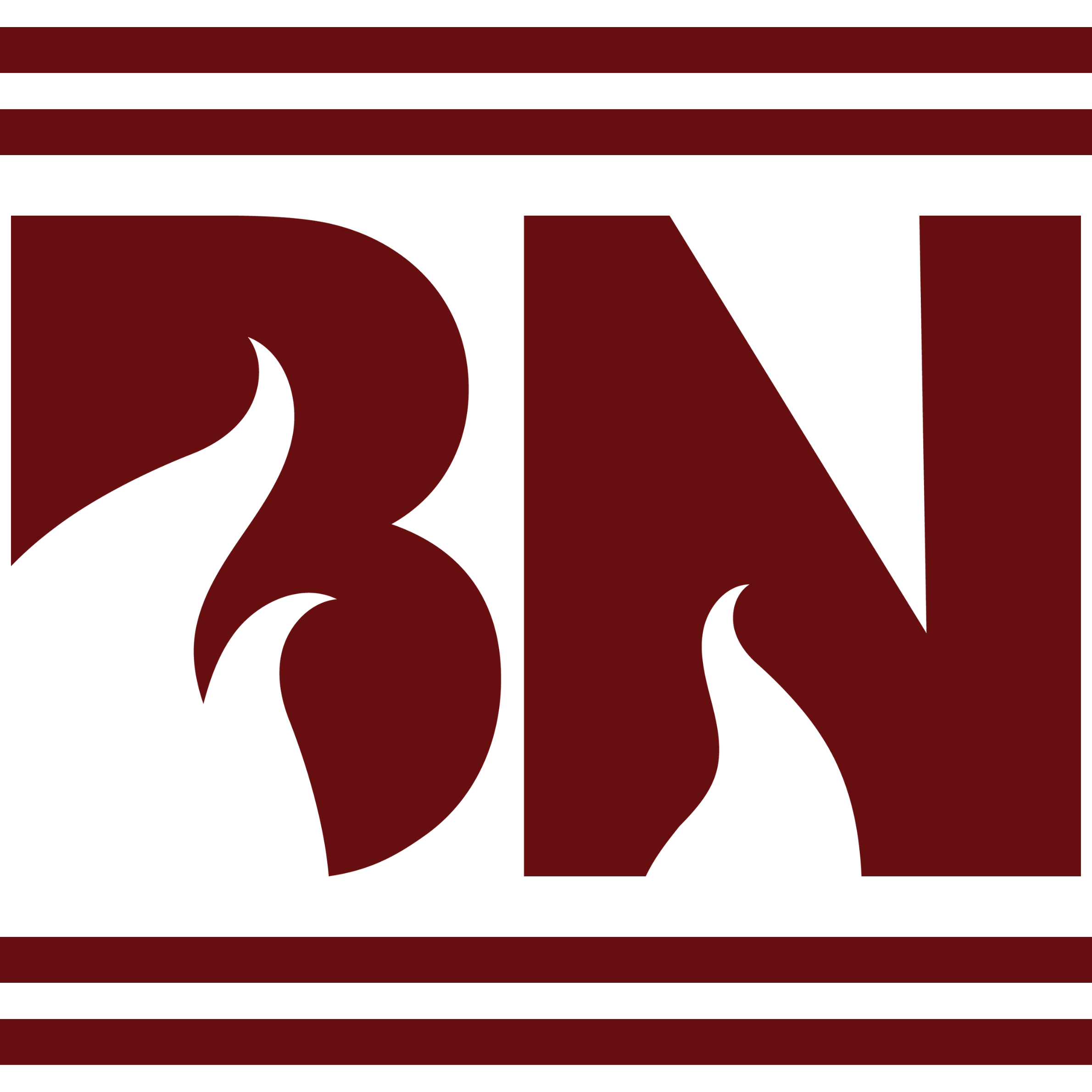
Katelyn Burns
Tell me a little bit about yourself. Obviously you have this new position leading the Marsha P. Johnson Institute, but tell me a little bit about where you're coming from as you enter that role.
Chastity Bowick
Well, I am coming from actually owning and running my own company, which I still do, which is Chastity's Consulting and Talent Group, where we provide education and training to businesses and organizations on how to not only provide transgender individual services, but also how to employ us and retain us as well. And prior to that, I was the Transgender Emergency Fund of Massachusetts executive director for seven years, which is the leading housing agency in New England for trans people and the only transitional house in New England.
Katelyn Burns
So tell me a little bit about what, the Marsha P Johnson Institute does.
Chastity Bowick
So Marsha P. Johnson's to uplift and fight for the empowerment and liberation of black trans individuals across this country and beyond, opening up doors for not only organizations, for individuals to have the same equal access as other trans people. Black people, black trans people need that same access. And so MPJI, just like Marsha P. Johnson threw that brick.
We are continuously throwing bricks into the system of oppression that has been placed on especially Black trans people.
Katelyn Burns
Yeah, you mentioned throwing that brick, right? And this is sort of why I'm most interested in speaking with you. But we're in this political moment now where trans people are being targeted in kind of historic ways. Although I would argue that trans people as a community have had it worse in the past, especially around that time of the brick. But
Can you talk a little bit about how you see Marsha P. Johnson's life and how she lived it and how she fought for liberation? And what are the things that we can pull from her life to apply to this present moment where we're so heavily targeted in a variety of ways?
Chastity Bowick
Well, first and foremost, I think that everybody should do their research and know exactly who Marsha P, Johnson is because all trans people, Black, white, Latin, Asian, they wouldn't be able to do the things they do today if it wasn't for her. And so I think outside of Marsha P. Johnson Institute, people should exactly know who she is.
But Marsha P. Johnson was resilient. She was the person who stood up for not only trans people, but gay people as well, lesbians as well. And she put herself on the line for the betterment of her community. She didn't know, and this is my personal opinion, she could not have known, in my opinion, if she was gonna be okay after being involved that night. She didn't know that. And by the grace of God, she was, she was able to continue to fight on and kick down the open doors for us, but that's what she was about. She was about liberation. She was about everybody having equal opportunity and equal rights. Like she want her rights and she want them now. And that's the same how we are today. It's like we deserve rights like everybody else and you're continuously trying to take our rights away. And just like Marsha P Johnson, we're not going to sit down and be quiet. We're going to stand up and fight for our community.
Katelyn Burns
You mentioned Stonewall and the brick and like, that's what she is known for, but really she's, she devoted her whole life to, fighting for the liberation of LGBT people, like you said. Why do you think it is that so many people jump to strictly associating her with Stonewall rather than her entire life's work, which spanned over decades?
Chastity Bowick
I think that people only think about that one moment, because everybody likes a big story picture, right? But nobody looks at the things behind the scenes of what's going on. And so this is why I say it's people like Marsha P. Johnson and Miss Major Mary Griffith who have shown people like me who do this work, how to do this work, how to open doors, it's not always about the spotlight. So I think a lot of the work that she did underground, behind the scenes, wasn't recognized by the media, right?
But those in the community, those stories trickle down to us. Like we hear about how she was pulling girls in, how she was taking clothes from other stores to give to the girls who didn't have none, things that never made it to print, right? And so it's very important that we continue to tell these stories about it's more than Stonewall, it's more than just that night and about that break.
It's about what she continued to do, what she was doing before that and what she continued to do after that, which was to uplift and support her community members. It just may not have always been something that was visible or something that caught media attention. And plus, mind you, what media attention were we getting back then? Nothing good. So I think it was more so the things that she did outside of Stonewall, underground, that has trickled throughout the community that we hear these stories within the community about how she did this, how she protected girls from Johns, and all different types of things. So I think it's not being talked about because it's not nationally known, if that makes sense.
Katelyn Burns
Right. Yeah, that makes total sense to me.
I think that for a lot of particularly white trans people, especially trans women, they look at this moment with Donald Trump and all of the politics of it they see the political threat and how it's starting to spill over into violence against white trans people. But from my perspective as somebody who's been covering this for a decade now and spent a lot of time before I transitioned thinking about the stuff. Like black trans people have always had that physical and political threat, right? Like all of the bad things that we imagine happening now as white trans people have always been happening to black trans people. So I guess my question is what lessons can white trans folks learn from black trans people to deal with what might feel like an overwhelming political moment right now.
Chastity Bowick
Well, first I must say that you one thing you said was very very correct black trans people we have been dealing with this for decades and for me the first point I would say is that when you see a Certain race within a community being targeted and you're not that part of that target
Don't ever think that it's not gonna happen to you. Because now, fast forward, and here we are, they don't care what color you are, as long as you're trans, you are a target. And so I say all that to say is that we need to start looking outside of ourselves now and start thinking like, okay, if they're doing this to my part of my community, but they're only doing it because they're black, I may be next. How about I figure out how can I assist the black trans community so that we won't be targeted together?
So I want to put that out there first. I think that that is something that needs to be said and need to be heard and need to be recognized because we could have worked together years and years ago to better prepare ourselves for this moment. But nevertheless, here we are. ⁓ And I would say for us as black trans women and men and non-binary individuals, we are used to being targeted. That is in our history of being black, of being Latin, right?
And so for us, we are still have our ancestors ingrained in us and with that is resilience, that is power, that is strength, and that is the will power not to give up and not to let anybody just walk over us. And so we have carried that torch from our ancestors like Sylvia Rivera, like Marsha P. Johnson to not give up, to not give into oppression because Marsha P. Johnson, she was not only trans, but she was black. So she lived through a certain period of time where she damn sure didn't have any of the rights that we have today. And so we have to be grateful for what we have now. I think white trans people need to look at their privilege and figure out how they can use their privilege not only to assist those that are being persecuted, but also how can we come together as an entire community?
Let's put race to the side, right? And come together as an entire community for the liberation of all trans people because that's the only way that it's gonna happen. We don't have a lot of lesbians, we don't have a lot of gays and bisexuals on our side right now, even though we were there for them. But we, within our community, need to come together. We need to show what unity really looks like within the trans community.
Katelyn Burns
I wanted to apologize. I didn't mean to center white trans people there. I just feel like there are lessons to be learned from people who have been in this fight. And that's why I wanted to ask that question. But I also wanted to ask like, how have things gotten worse for black trans people in this time specifically? Cause like you said, you have been in this fight, you know, people have been fighting against you all for longer
Chastity Bowick
Absolutely.
Katelyn Burns
So how has your community been affected by all of this?
Chastity Bowick
I think things are just getting worse. So we were mainly affected individually. Now they are targeting our organizations. So black and brown led trans organizations are being targeted in different ways, depending on the state that they are in, about what services they provide. How did they get this funding? Was this funding legally used the right way? And so not only do we have personal attacks on us individually, now our organizations are up on the chopping block.
So now it's up to us to prepare, protect, to make sure that we are all in compliance with our organizations because if they take away, try to take away our organizations, our organizations are designed to help our community members. If they take away that help, where does that leave our community?
That's kind of the legacy that Marsha P. Johnson left behind, right, with Star and and those other organizations like that were built out of individual work that turned into community work, right.
And that's the same as the Marsha P. Johnson Institute. It was built by an individual, Elle Moxley, and turned into a community.
Katelyn Burns
From my perspective as a journalist, I look back at 2016 and I want to say 2020. A lot of my work was done around highlighting or trying to draw attention to the violence against black trans people. I remember there was a project that I did a long time ago for I think a magazine that no longer exists where I ended up speaking with the families of or murdered black trans people.
In the United States, I don't see that coverage anymore. Like, it's not something that mainstream publications are writing about anymore. Online publications aren't writing for it. Why do you think that is?
Chastity Bowick
It's 2025 and this is no longer democracy. This is a dictatorship and any news outlets that are heavily covering trans stories, whether good or positive will be targeted by this White House administration. So that's why you no longer see the deaths, even though they would report you are correct, Katelyn would have usually reported like, another trans woman was murdered or this trans person was, but they have stopped reporting that because we are no longer considered to literally to be a part of this population. We are looked at as aliens, so to speak. ⁓ and so they don't care if, if we are murdered, if we are attacked, if we are raped, if we are beaten, they don't care. And so this is another way for them to push us into the background for us not to be seen or our stories not to be heard.
And so this is why we need trans media. We need queer media to cover these stories, cover the good, cover the bad, so people know what is actually happening to our community members. Like, I don't, it's not talked about, but they are, I say, picking up our trans brothers, sisters, and in between every day, every day. But that's not being talked about.
Katelyn Burns
I know. And we don't know where they're going either.
Chastity Bowick
Exactly, and you know where they are going. If their country doesn't want them because of their identity, they're going to send them to whatever country they can. That could be Sudan, that could be who knows, right? And so this needs to be talked about more widely within our communities. And we have to try to figure out how we can protect our siblings during this time, especially when it comes to ICE and immigration, because they're not really just picking up, you know.
People who shouldn't be here, they pickin' up anybody who they see fit to.
Katelyn Burns
How can my trans readers… what can they do to help unite the community to fight back?
Chastity Bowick
Well, definitely sign up for our newsletter. Sign up for the MPJI newsletter so you know what type of events and things that we have coming out. But then also get involved with an organization. Now, MPJI, we will be accepting volunteers soon, but it doesn't have to be MPJI. Get involved with a trans organization that aligns with your personal values because that's the only way that you're going to be effective.
And in doing so, that's how you can uplift and help that organization, may it be MPJI, may it be the Transgender Law Center, the Transgender Emergency Fund, just to make sure that you're getting involved and you're assisting in uplifting these organizations because they are trying to take our resources away and we cannot let them do that. And so I just encourage every trans and gender nonconforming individual to get involved with the organization, figure out how you can give back.
If you are of the means of becoming a recurring donor of MPJI and mind you, a recurring donor can be $5 a month to $5,000 a month. Every amount helps go towards this mission to uplifting and fighting for the liberation of Black trans people and everybody else in our community. And so that will be my tidbits and suggestions for our whole entire trans community.
Find a way to get involved. Do not sit back and just look on the computer and look at the comments and watch the horrible news. We need action. We need people on the ground to get involved so we can save our community.
Katelyn Burns
And ⁓ would your advice be any different to the readers who find this who are not trans?
Chastity Bowick
Yes, my advice would be to be a stronger ally. Imagine if I were your daughter, your niece, would you want me to be persecuted just for living my authentic self? And so I encourage you to get involved. Please also subscribe to the newsletter about the Marshall P. Johnson Institute and get more involved in the community because it may be trans people today, but it could be the allies tomorrow. So, yeah.
Katelyn Burns
Well Chastity I appreciate your time. Thank you so much.
Chastity Bowick
You're very, very welcome.
Thank you for reading! I'll be back on Friday with the usual Sick Burns weekly round up. I couldn't do this work without the support of you, the readers! If you appreciated this piece and want more, subscribe! You can do so for free, or you could help me out financially with a paid sub either on the newsletter or on my Patreon.
Thanks so much.
-Katelyn

